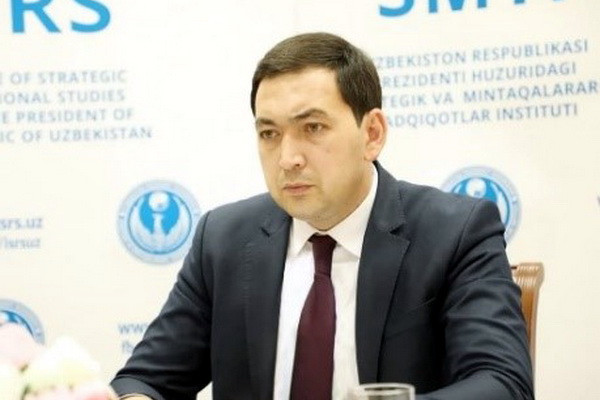
Experts of Uzbekistan and Germany discuss issues of cooperation in the field of labor migration
Tashkent, Uzbekistan (UzDaily.com) – On 10 March 2021, an online conference on the topic “External labor migration: opportunities and challenges for Uzbekistan” was held in the “Chatham House” format.
More than 30 experts from analytical centers of Central Asia and Germany took part in the virtual dialogue, organized by the leading German Science and Politics Foundation.
Speaking at the event, the head of the Center of the Institute for Strategic and Interregional Studies under the President of Uzbekistan Bakhtiyor Mustafayev noted that ensuring employment and employment of the population is a priority direction of socio-economic reforms in Uzbekistan.
At the same time, special attention was also paid to the issues of organized external labor migration. According to B. Mustafayev, with the election of Shavkat Mirziyoyev to the post of President of Uzbekistan, the attitude and approaches in this area have changed dramatically, the legal and institutional framework for organizing external labor migration has been significantly strengthened, support and protection of the rights and interests of labor migrants has been strengthened.
In order to coordinate the activities of government bodies in the field of labor migration, a special post of adviser to the Prime Minister has been established. A Fund for support and protection of the rights and interests of labor migrants has been created, a procedure has been introduced for their compulsory vocational training and teaching foreign languages to persons in 13 mono-centers "Ishga Markhamat", 136 points of vocational training, centers of competence assessment.
Speaking about the intensification of international cooperation in the field of external labor migration, B. Mustafayev noted that until 2016 Uzbekistan had relevant agreements only with the Republic of Korea and Russia. Today, under intergovernmental agreements, labor migrants also travel to Kazakhstan, Turkey, the United Arab Emirates, Japan, KSA and Poland.
Representatives of the political-forming circles of Germany highly appreciated the ongoing policy in Uzbekistan in the field of employment and employment. The efforts undertaken by Uzbekistan to improve the qualifications and vocational training of citizens traveling abroad to carry out labor activities were especially noted.
The practice of creating joint vocational training centers with the Republic of Korea and Japan on the basis of the existing mono-centers "Ishga Markhamat", which contributes to the formation of a qualified labor force in demand in all developed countries, aroused great interest of German experts.
As noted, today Germany is experiencing a shortage of labor in the healthcare, construction industry, handicraft sector of the economy, electrical industry and mechanical engineering. The growing interest of German business circles in enhancing cooperation with Uzbekistan in the field of labor migration was indicated.
As an example, the joint activity of the German specialized company "GfM Gruppe" and the Agency for External Labor Migration of Uzbekistan on the organized recruitment of Uzbek citizens for vocational training in Germany through the dual education system with parallel employment in German companies and institutions is given.
Moreover, attention was drawn to the plans of the "GfM Gruppe" company to assist in the creation of vocational training centers in Uzbekistan based on German methods and standards on the basis of the existing monocenters "Ishga Markhamat".
In general, the conference participants agreed that there is significant potential for cooperation in Uzbek-German relations. In this regard, the parties agreed to continue regular expert meetings to develop practical proposals in the field of labor migration.